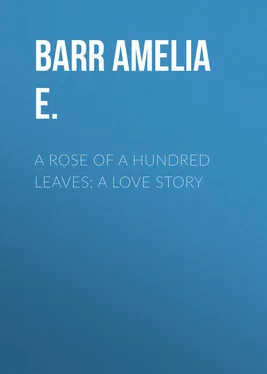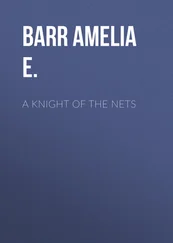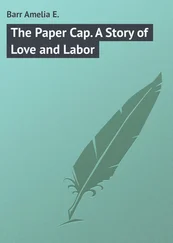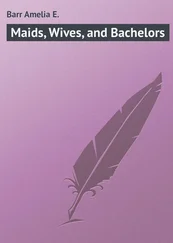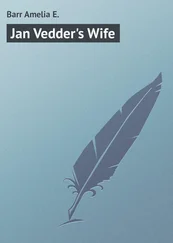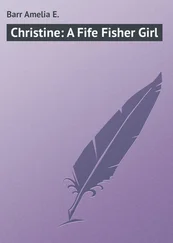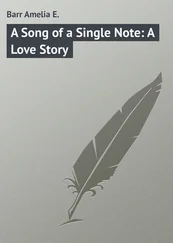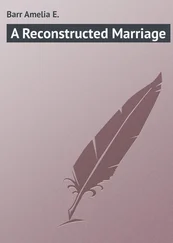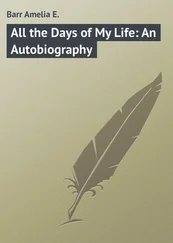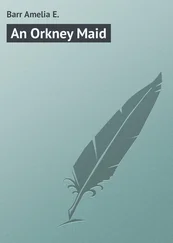Amelia Barr - A Rose of a Hundred Leaves - A Love Story
Здесь есть возможность читать онлайн «Amelia Barr - A Rose of a Hundred Leaves - A Love Story» — ознакомительный отрывок электронной книги совершенно бесплатно, а после прочтения отрывка купить полную версию. В некоторых случаях можно слушать аудио, скачать через торрент в формате fb2 и присутствует краткое содержание. Жанр: foreign_prose, Зарубежные любовные романы, на английском языке. Описание произведения, (предисловие) а так же отзывы посетителей доступны на портале библиотеки ЛибКат.
- Название:A Rose of a Hundred Leaves: A Love Story
- Автор:
- Жанр:
- Год:неизвестен
- ISBN:нет данных
- Рейтинг книги:4 / 5. Голосов: 1
-
Избранное:Добавить в избранное
- Отзывы:
-
Ваша оценка:
- 80
- 1
- 2
- 3
- 4
- 5
A Rose of a Hundred Leaves: A Love Story: краткое содержание, описание и аннотация
Предлагаем к чтению аннотацию, описание, краткое содержание или предисловие (зависит от того, что написал сам автор книги «A Rose of a Hundred Leaves: A Love Story»). Если вы не нашли необходимую информацию о книге — напишите в комментариях, мы постараемся отыскать её.
A Rose of a Hundred Leaves: A Love Story — читать онлайн ознакомительный отрывок
Ниже представлен текст книги, разбитый по страницам. Система сохранения места последней прочитанной страницы, позволяет с удобством читать онлайн бесплатно книгу «A Rose of a Hundred Leaves: A Love Story», без необходимости каждый раз заново искать на чём Вы остановились. Поставьте закладку, и сможете в любой момент перейти на страницу, на которой закончили чтение.
Интервал:
Закладка:
Amelia Edith Huddleston Barr
A Rose of a Hundred Leaves: A Love Story
CHAPTER I.
THE WILD ROSE IS THE SWEETEST
I tell again the oldest and the newest story of all the world, – the story of Invincible Love!
This tale divine – ancient as the beginning of things, fresh and young as the passing hour – has forms and names various as humanity. The story of Aspatria Anneys is but one of these, – one leaf from all the roses in the world, one note of all its myriad of songs.
Aspatria was born at Seat-Ambar, an old house in Allerdale. It had Skiddaw to shelter it on the northwest; and it looked boldly out across the Solway, and into that sequestered valley in Furness known as “the Vale of the Deadly Nightshade.” The plant still grew there abundantly, and the villagers still kept the knowledge of its medical value taught them by the old monks of Furness. For these curious, patient herbalists had discovered the blessing hidden in the fair, poisonous amaryllis, long before modern physicians called it “belladonna.”
The plant, with all its lovely relations, had settled in the garden at Seat-Ambar. Aspatria’s mother had loved them all: the girl could still remember her thin white hands clasping the golden jonquils in her coffin. This memory was in her heart, as she hastened through the lonely place one evening in spring. It ought to have been a pleasant spot, for it was full of snowdrops and daffodils, and many sweet old-fashioned shrubs and flowers; but it was a stormy night, and the blossoms were plashed and downcast, and all the birds in hiding from the fierce wind and driving rain.
She was glad to get out of the gray, wet, shivery atmosphere, and to come into the large hall, ruddy and glowing with fire and candle-light. Her brothers William and Brune sat at the table. Will was counting money; it stood in small gold and silver pillars before him. Brune was making fishing-flies. Both looked up at her entrance; they did not think words necessary for such a little maid. Yet both loved her; she was their only sister, and both gave her the respect to which she was entitled as co-heir with them of the Ambar estate.
She was just sixteen, and not yet beautiful. She was too young for beauty. Her form was not developed; she would probably gain two or three inches in height; and her face, though exquisitely modelled, wanted the refining which comes either from a multitude of complex emotions or is given at once by some great heart-sorrow. Yet she had fascination for those capable of feeling her charm. Her large brown eyes had their childlike clearness; they looked every one in the face with its security of good-will. Her mouth was a tempting mouth; the lips had not lost their bow-shape; they were red and pouting, but withal ever ready to part. She might have been born with a smile. Her hair, soft and dark, had that rarest quality of soft hair, – a tendency to make itself into little curls and tendrils and stray down the white throat and over the white brow; yet it was carefully parted and confined in two long braids, tied at the ends with a black ribbon.
She wore a black dress. It was plainly made, and its broad ruffle around the open throat gave it an air of simplicity almost childlike in effect. Her arms below the elbows were uncovered, and her hands were small and finely formed, as patrician hands should be. There was no ring upon them, and no bracelet above them. She wore neither brooch nor locket, nor ornament of any kind about her person; only a daffodil laid against the snowy skin of her bosom. Even this effect was not the result of coquetry; it was a holy and loving sentiment materialized.
Altogether, she was a girl quite in keeping with the antique, homelike air of the handsome room she entered; her look, her manner, and even her speech had the local stamp; she was evidently a daughter of the land. Her brothers resembled her after their masculine fashion. They were big men, whom nature had built for the spaces of the moors and mountains and the wide entrances of these old Cumberland homes. They would have been pushed to pass through narrow city doorways. A fine open-air colour was in their faces; they had that confident manner which great physical strength imparts, and that air of conscious pride which is born in lords of the soil.
Indeed, William and Brune Anneys made one understand how truthfully popular nomenclature has called an Englishman “John Bull.” For whoever has seen a bull in its native pastures – proud, obstinate, conscious of his strength, and withal a little surly – must understand that there is a taurine basis to the English character, finely expressed by the national appellation.
A great thing was to happen that hour, and all three were as unconscious of the approaching fate as if it was to be a part of another existence. Squire William finished his accounts, and played a game of chess with his brother. Aspatria walked up and down the hall, with her hands clasped behind her, or sat still in the Squire’s hearth-chair, with her dress lifted a little in front, to let the pleasant heat fall upon her ankles. She did not think of reading or of sewing, or of improving the time in any way. Perhaps she was not as dependent on books as the women of this generation. Aspatria’s mind was sensitive and observing; it lived very well on its own ideas.
The storm increased in violence; the rain beat against the windows, and the wind howled at the nail-studded oak door, as if it intended to blow it down. A big ploughman entered the room, shyly pulled his front hair, and looked with stolid inquiry into his master’s face. The Squire pushed aside the chess-board, rose, and went to the hearth-stone; for he was young in his authority, and he felt himself on the hearth-stone to hold an impregnable position.
“Well, Steve Bell, what is it?”
“Be I to sow the high land next, sir?”
“If you can have a face or back wind, it will be best; if you have an elbow-wind, you must give the land an extra half-bushel.”
“Be I to sow mother-of-corn 1 1 Clover.
on the east holme?”
“It is matterless. Is it going to be a flashy spring?”
“A right season, sir, – plenty of manger-meat.”
“How is the weather?”
“The rain is near past; it will take up at midnight.”
As he spoke, Aspatria, who had been sitting with folded hands and half-shut eyes, straightened herself suddenly, and threw up her head to listen. There was certainly the tramp of a horse’s feet, and in a moment the door was loudly and impatiently struck with the metal handle of a riding-whip.
Steve Bell went to answer the summons; Brune trailed slowly after him. Aspatria and the Squire heard nothing on the hearth but a human voice blown about and away by the wind. But Steve’s reply was distinct enough, —
“You be wanting Redware Hall, sir? Cush! it’s unsensible to try for it. The hills are slape as ice; the becks are full; the moss will make a mouthful of you – horse and man – to-night.”
The Squire went forward, and Aspatria also. Aspatria lifted a candle, and carried it high in her hand. That was the first glimpse of her that Sir Ulfar Fenwick had.
“You must stay at Seat-Ambar to-night,” said William Anneys. “You cannot go farther and be sure of your life. You are welcome here heartily, sir.”
The traveller dismounted, gave his horse to Steve, and with words of gratitude came out of the rain and darkness into the light and comfort of the home opened to him. “I am Ulfar Fenwick,” he said, – “Fenwick of Fenwick and Outerby; and I think you must be William Anneys of Ambar-Side.”
“The same, sir. This is my brother Brune, and my sister Aspatria. You are dreeping wet, sir. Come to my room and change your clothing.”
Читать дальшеИнтервал:
Закладка:
Похожие книги на «A Rose of a Hundred Leaves: A Love Story»
Представляем Вашему вниманию похожие книги на «A Rose of a Hundred Leaves: A Love Story» списком для выбора. Мы отобрали схожую по названию и смыслу литературу в надежде предоставить читателям больше вариантов отыскать новые, интересные, ещё непрочитанные произведения.
Обсуждение, отзывы о книге «A Rose of a Hundred Leaves: A Love Story» и просто собственные мнения читателей. Оставьте ваши комментарии, напишите, что Вы думаете о произведении, его смысле или главных героях. Укажите что конкретно понравилось, а что нет, и почему Вы так считаете.
